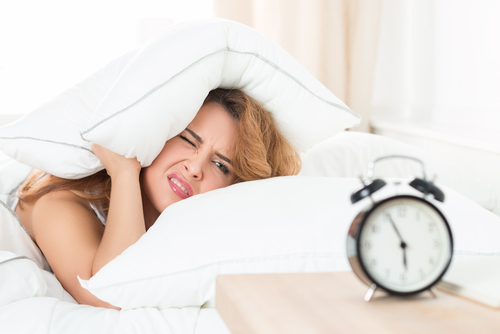You know how difficult it is to pull yourself out of the morning stupor. It almost feels as if you are hung-over: your vision is blurred, your body aches, and your head feels stuffy. Hitting the sack immediately after stumbling out of the sheets feels like the only reasonable solution.
Is this description too close for comfort? If regular eight hours of sleep per night aren’t working their magic, you might want to reassess your practices of good sleep hygiene. In this post, we’ll look into some possible yet often overlooked causes of sleep deprivation.
1. Disrupted circadian rhythm
Disrupted circadian rhythm is easily overlooked these days because we (as a civilization) have gotten used to staying awake until morning. Furthermore, it appears that you are encouraged to stay awake by a brightly-lit cityscape, portable screens, and computer monitors. Blue lights are everywhere, and they upset your body’s natural production of melatonin.
You can roughly say that these factors disrupt your circadian rhythm. Suddenly, you will feel energized after midnight and relentlessly fatigued before early afternoon. While the idea of altering this bad habit sounds compelling at first, you might not be as eager to correct your circadian rhythm as you might initially think.
Old habits die hard, especially if they are tied to multimedia. It will be inhumanly difficult to put down your phone at least two or three hours before bed. Abruptly ceasing to watch your favorite shows also goes out the window. You might dread the idea of denying yourself easy entertainment, but self-control is crucial.
You have to hit the sack at the same time each night and make an effort to get up as soon as the alarm goes off. Sleeping intervals need to have a healthy and consistent length. It gets easier over time as your body gets used to this rhythm, but don’t forget that snoozing is your worst enemy. Activate your mind as soon as you open your eyes – give it a ‘hook’ of interest. Start scrolling through news threads or play some music.
The final aspect of correcting your circadian rhythm is a consistent dietary habit. The philosophy of maintaining a precise bedtime every day applies here as well. Get used to having your three meals at the same time each day, and don’t eat anything after eight in the evening. The circadian rhythm is closely tied to digestion cycles.
2. Mouth Breathing
We are quite limited when it comes to breathing passageways, which is why all healthy people inhale through the nose. Nose congestion creates a situation when mouth breathing becomes necessary, and this habit can be especially troublesome during sleep.
Individuals who breathe through their mouths while they sleep usually have problems with snoring, or worse, suffer from sleep apnea. Studies have also shown that mouth breathing is linked with a predisposition to ADHD and general sleep disorders.
What’s worse, this condition impedes sleep quality even if you have beneficial lifestyle habits while you are awake, and if left untreated, it is a proxy condition for other terrible ailments: cardiovascular diseases, type-2 diabetes, and the probability of a stroke. Chronic fatigue is the least of it.
So, what can you do about it?
First up, you need to open your nose and close your mouth by any means necessary to increase your sleep quality. Good nose-breathing habits promote your body’s natural ability to produce nitric oxide, a molecule that is also acquired through regular exercise and ingestion of nitrate-rich foods.
As you may have well guessed, this means that correct nose breathing while you sleep is pivotal for good health, and some people find mouth taping to be beneficial and effective. There are no secret recipes or methods here – it is as simple and strictly mechanical as it sounds. Sealing your mouth shut will force you to breathe through your nose, which further goes to improve the robustness of nasal mucosa and your overall health.
3. Hot showers
Taking a hot shower is one of the most overlooked causes of messy sleep right now. You’ve probably heard the ubiquitous advice that a hot shower will relax your body and make you sleepier. The tricky part is that you can find a half-truth in this tip. A hot shower will undeniably be effective in making you drowsy, but it will not improve your sleep quality – not by a long shot.
Temperature regulation plays a fundamental role in sleep quality. When you look back, you’ll probably realize that colder environments led to a solid night of dreams followed by a restful morning. That’s because your body links sleep with a fall of temperature, which means that a hot shower leads to a form of biomechanical confusion.
If you, like most of us, enjoy hot showers with absolute passion, you don’t have to relinquish the habit. The simple solution is to have your hour in a steam-filled bathroom at least ninety minutes or, preferably, two hours before bedtime. This will give your body enough time to regulate its temperature.
Conclusion
Let’s get one final issue out of the way: it is perfectly normal to feel tired once in a while. This is especially the case during prolonged winter months, when we are naturally less vigorous as a result of shortened daylight hours and spending more time indoors.
Since sleep plays such a vital role in anyone’s life, you have to ensure that hours spent dozing are of top-notch quality, without too much regard for length, at first. To stay healthy and retain robust immunity, you have to sleep for six to nine hours a night anyway – but the length doesn’t count for all that much if your body suffers consistently throughout the night.

